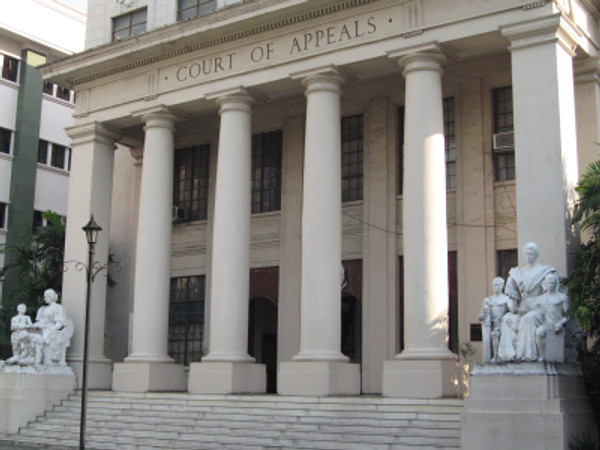How the Court of Appeals ruled on Maria Ressa’s cyber libel case

The Court of Appeals. CONTRIBUTED PHOTO/COURT OF APPEALS WEBSITE
MANILA, Philippines — The Court of Appeals (CA) has resolved that 15 years after a story is posted online, a cyberlibel lawsuit can still be filed in court.
In a decision affirming the cyberlibel conviction of Nobel Laureate and Rappler CEO Maria Ressa and former researcher-writer Reynaldo Santos Jr., the CA said that a one-year prescription for libel cannot apply to cyberlibel cases.
The CA explained that the penalty imposed for cyberlibel – imprisonment for up to eight years – is classified as afflictive which under Article 90 of the Revised Penal Code (RPC), the prescription should be 15 years.
Libel, under Article 355 of the Revised Penal Code, is punishable only by imprisonment of six months up to four years and two months and belongs to a different classification of penalties.
READ: CA affirms cyber libel conviction of Rappler CEO Ressa, ex-writer
Article continues after this advertisementSantos wrote the article in May 2012 claiming that businessman Wilfredo Keng lent his sports utility vehicle to then Chief Justice Renato Corona.
Article continues after this advertisementThe story also cited an intelligence report that said Keng had been under surveillance by the National Security Council for alleged involvement in human trafficking and drug smuggling.
The article was re-posted in February 2014.
Ressa’s camp argued that they could not be prosecuted for cyberlibel because the law, at that time, was subject to a restraining order by the Supreme Court.
However, the CA said the Cybercrime Law was signed into law in September 2012 and became effective on October 9 that year. Although there was a restraining order, the CA said only the implementation was enjoined but the effectivity remains in place.
“The TRO issued by the Supreme Court only enjoined the implementation of the Cybercrime Law, but not its effectivity. As the law remained effective, the lifting of the TRO consequently meant that the acts committed during the effectivity of restraining order was in effect can be subsequently charged and prosecuted,” it said.
Elements of libel
Is the article subject of the cyber libel case defamatory?
“Without a doubt, upon reading the subject article, one would understand in its plain and ordinary meaning that the author thereof painted Keng as someone involved in several illegal activities…thereby besmirching his reputation and casting him dishonor, discredit and public ridicule,” the CA said.
When it comes to malice, the CA said the Cybercrime Law imposes a stricter standard to convict someone if the offended party is a public figure. But if the offended party is a private person, “the prosecution need not prove the presence of malice as the law explicitly presumes its existence.”
In this case, since Keng is a private person, “the law is clear that malice is presumed from the defamatory and libelous character of the statements rendered in the subject article.”
READ: Ressa’s counsel Amal Clooney urges SC, Marcos gov’t to defend free press
The CA also noted an unpublished story written by another Rappler reporter about Keng’s side. It wasn’t published because other news was more urgent.
The appeals court deemed such a reason as “flimsy.”
Regarding publication, the original article was posted in May 2012. The February 2014 update to the previous article corrected the spelling of the word “evasion.”
But the appeals court said, “a single defamatory statement if published several times, gives rise to as many offenses as there are publications.”
A novel implementation of Cybercrime Law
The CA said public officers and private individuals who are wronged in the inordinate exercise of freedom of speech and the press “have every right to avail themselves of the legal remedies for libel.”
It said the case against Ressa involves a novel implementation of the Cybercrime Law which seeks to curb, if not totally prevent, “the reckless and unlawful use of the computer systems to commit traditional criminal offenses.”
But the CA clarified that the strict implementation and imposition of penalties of cyberlibel do not aim at curtailing freedom of expression but serve “as a major deterrent to the damaging and defaming of a person’s reputation that could be easily and successfully carried out at one’s fingertips.”
The decision affirming the cyberlibel conviction of Ressa and Santos was penned by Associate Justice Roberto Quiroz and concurred by Associate Justices Ramon Bato Jr. and Germano Francisco Legaspi.
The case is not yet final. However, Ressa’s counsel said they would exhaust all legal remedies, including elevating the case to the Supreme Court.